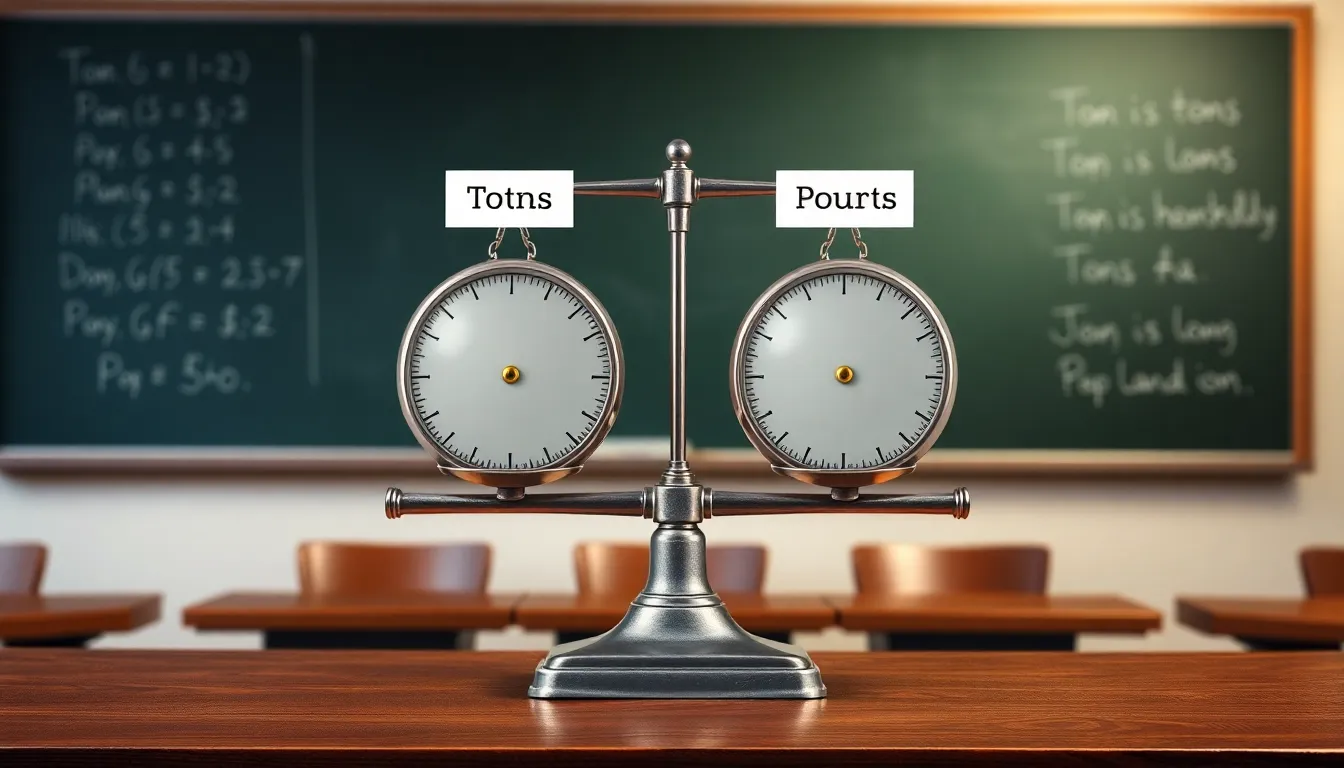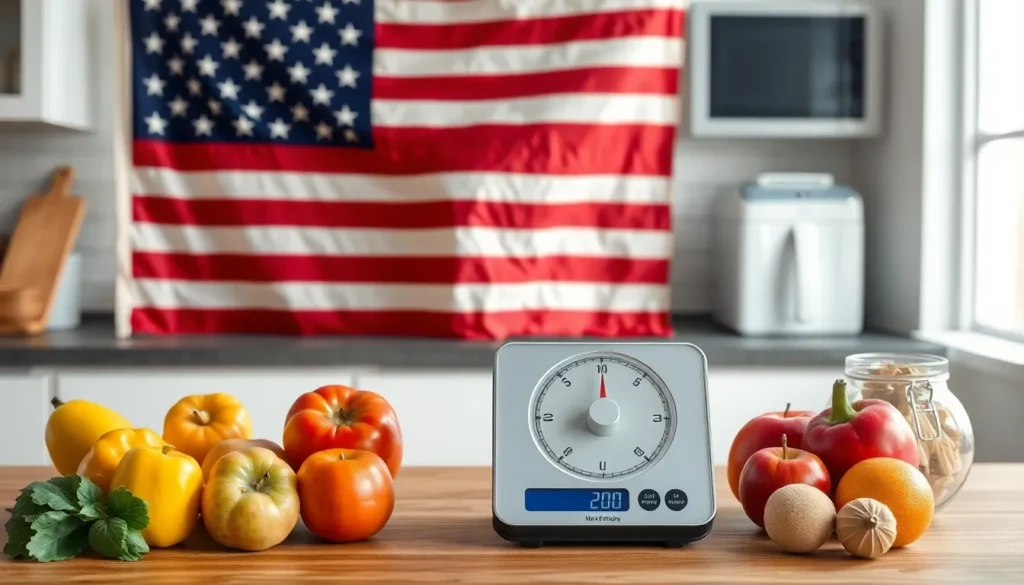Table of Contents
ToggleUnderstanding weight conversions is essential in various fields, from cooking to engineering. One common conversion that often arises is how many pounds are in a ton. This question is particularly relevant for those working with international measurements or dealing with shipping and logistics.
In the U.S., a ton is defined as 2,000 pounds, while in other regions, such as Europe, a metric ton equals 2,204.62 pounds. Knowing these differences can save time and prevent costly mistakes. Whether it’s for personal use or professional needs, grasping the conversion from tons to pounds is a practical skill everyone should have.
Understanding Toneladas and Libras
Understanding the relationship between toneladas (tons) and libras (pounds) is crucial for various calculations. It’s essential to recognize that in the United States, one ton equals 2,000 pounds. This measurement applies to the short ton commonly used in American contexts.
In contrast, the metric ton, prevalent in Europe and other regions, converts to approximately 2,204.62 pounds. The distinction between these two types of tons plays a significant role in industries like shipping, manufacturing, and construction. Accurate conversion ensures compliance with regulations and efficiency in operations.
To illustrate the conversion clearly, here’s a quick reference table:
| Type of Ton | Equivalent in Pounds |
|---|---|
| Short Ton | 2,000 lbs |
| Metric Ton | 2,204.62 lbs |
Awareness of these differences aids in avoiding errors, particularly in projects that involve international standards and collaborations. Understanding these conversions empowers individuals to engage effectively in discussions that pertain to weight, cost estimation, and resource allocation.
The Conversion Process

Understanding the conversion process between tons and pounds is essential for accurate calculations. This section outlines the mathematical formula for conversions and provides practical examples for clarity.
Mathematical Formula
The standard conversion formula for tons to pounds is simple. To convert a ton to pounds, multiply the value in tons by 2,000 for U.S. short tons or by 2,204.62 for metric tons. Mathematically, the formulas are:
- For U.S. short tons:
[ text{Pounds} = text{Tons} times 2,000 ]
- For metric tons:
[ text{Pounds} = text{Metric Tons} times 2,204.62 ]
Using this formula ensures accurate conversions in various applications.
Practical Examples
Examples clarify the conversion process. Consider the following scenarios:
- Converting 5 U.S. short tons:
[ 5 text{ tons} times 2,000 = 10,000 text{ pounds} ]
- Converting 3 metric tons:
[ 3 text{ metric tons} times 2,204.62 = 6,613.86 text{ pounds} ]
- Converting 10 U.S. short tons:
[ 10 text{ tons} times 2,000 = 20,000 text{ pounds} ]
These examples demonstrate how to apply the conversion formulas effectively.
Common Applications
Understanding the conversion between tons and pounds plays a critical role in several areas, including industrial operations and everyday scenarios.
Industrial Use
In industries like shipping, manufacturing, and construction, precise weight conversion facilitates logistics and compliance. Equipment and material specifications often require knowledge of both tons and pounds. For instance, a shipment weighing 10 tons translates to 20,000 pounds. This understanding aids in load management and safety regulations, enabling businesses to optimize operations and reduce costs. Accurate weight measurements also ensure proper compliance with international shipping standards, as companies interact in a global marketplace.
Everyday Scenarios
Everyday applications of weight conversions include cooking, grocery shopping, and fitness. Recipes may call for ingredients measured in pounds, while bulk purchases often reference tons. For example, a recipe requiring 1 ton of flour translates to 2,000 pounds, impacting ingredient sourcing. In fitness, individuals tracking weights for lifting routines can benefit from understanding how their goals translate across different measurement systems. Recognizing these conversions enhances efficiency in daily tasks and promotes accuracy in weight-related decisions.
Tools for Conversion
Tools for conversion simplify the process of converting between toneladas and libras. Utilizing online calculators and mobile apps enhances accuracy and efficiency in calculations.
Online Calculators
Online calculators provide immediate conversions for tons to pounds. Users can input a specific ton value, and the calculator automatically outputs the corresponding pound figure. Many reputable websites, such as RapidTables and Calculator Soup, offer these tools for free, making them accessible for quick reference. Online calculators enable accurate calculations with minimal effort, which is particularly beneficial in professional settings where precision is critical.
Conversion Apps
Conversion apps offer a convenient solution for weight conversions on-the-go. These apps, available on iOS and Android, allow users to convert tons to pounds with just a few taps. Popular applications like “Unit Converter” and “ConvertPad” feature user-friendly interfaces and offline capabilities. These apps can store frequently used conversions, making them ideal for engineers, chefs, and students alike. By incorporating conversion apps into daily routines, users can ensure they achieve reliable results swiftly and effectively.
Mastering the conversion between toneladas and libras is essential for anyone engaged in activities that require precise weight measurements. Whether in professional settings like shipping and manufacturing or everyday tasks like cooking, understanding these conversions can lead to better decision-making and efficiency.
With the right tools and knowledge, individuals can confidently navigate weight conversions, ensuring compliance and accuracy in various applications. Embracing this skill not only saves time but also enhances overall effectiveness in managing resources. As awareness of these distinctions grows, so does the ability to communicate effectively in both personal and professional contexts.




